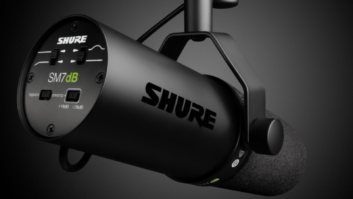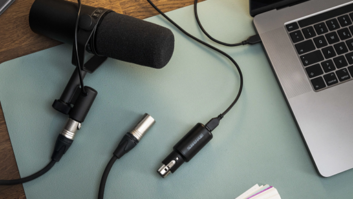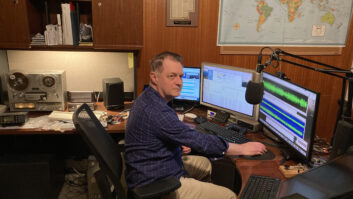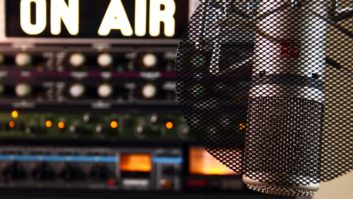Microphone maker Shure Inc. says the noise floor in the radio spectrum is indeed rising as the number of devices that emit radio energy continues to grow.
The longtime audio equipment manufacturer submitted comments as part of the noise floor inquiry instigated by a technical advisory group to the Federal Communications Commission.
The inquiry hits home for Shure, whose professional wireless microphones rely on the availability of so-called clean spectrum.“In recent years, the reduction in the amount of spectrum that is available for wireless microphones to use resulting from television band auctions and reallocations has caused significant problems for users,” the company wrote.
Shure said quantitative information available is limited and that the situation should be better addressed to determine the full extent of noise floor changes.
The company said it has responded to the noise floor challenge by developing technology that allows more wireless audio channels to be packaged into a single TV channel. “However, in order to work, these state-of-the-art systems require spectrum that is free of man-made noise and interference,” Shure wrote. According to the company, wireless microphone users have been adversely affected by interference resulting from various emitters that unintentionally elevate the radio spectrum noise floor above acceptable levels. These items include LED lighting, LED video walls and industrial control systems.
“The resulting broadband energy spread throughout the Very High Frequency (VHF) and Ultra High Frequency (UHF) and other spectrum used by professional wireless microphones causes in-band, co-channel interference that cannot be filtered and can degrade or disrupt wireless microphone signals.”
Shure said it is taking its own steps. It is consulting with the professional frequency coordination communities in sectors like music production, theater, corporate events and news programming, to develop a standard list of equipment and measurement parameters for collection of data from wireless mic users.
“Using these parameters, collaborating parties will be able to provide scans and measurements of ambient noise in various locations where wireless microphones are used,” the company wrote.
Shure said it will be working with these groups to develop standard settings capable of capturing noise levels in certain ranges; it welcomed the opportunity to work with the FCC’s Technical Advisory Council prior to the collection of data for submission. It said the data will provide a useful snapshot of the impact of the rising noise floor on wireless devices from multiple locations.
Shure Radio Company was founded in 1925 by S. N. Shure as a one-man company selling radio parts kits in Chicago, according to the company website; it became Shure Brothers Co. three years later. Related:
Stakeholders Weigh In on Radio Spectrum Noise












